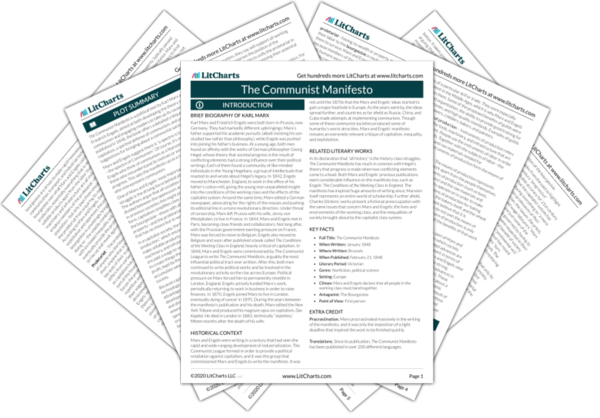Peasants Quotes in The Communist Manifesto
The history of all hitherto existing society is the history of class struggles.
Freeman and slave, patrician and plebeian, lord and serf, guildmaster and journeyman, in a word, oppressor and oppressed, stood in constant opposition to one another, carried on an uninterrupted, now hidden, now open fight, that each time ended, either in the revolutionary reconstitution of society at large, or in the common ruin of the contending classes.

Unlock explanations and citation info for this and every other The Communist Manifesto quote.
Plus so much more...
Get LitCharts A+
Peasants Quotes in The Communist Manifesto
The history of all hitherto existing society is the history of class struggles.
Freeman and slave, patrician and plebeian, lord and serf, guildmaster and journeyman, in a word, oppressor and oppressed, stood in constant opposition to one another, carried on an uninterrupted, now hidden, now open fight, that each time ended, either in the revolutionary reconstitution of society at large, or in the common ruin of the contending classes.

Unlock explanations and citation info for this and every other The Communist Manifesto quote.
Plus so much more...
Get LitCharts A+








